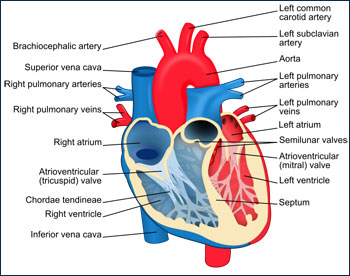
Dr. Suman Karmakar
MBBS ( Gold Medalist), Calcutta Medical College ( CMC), MD Internal Medicine, AIIMS, DM Cardiology, AIIMS

MBBS ( Gold Medalist), Calcutta Medical College ( CMC), MD Internal Medicine, AIIMS, DM Cardiology, AIIMS
Treatment
Heart failure is a chronic disease needing lifelong management. However, with treatment, signs and symptoms of heart failure can improve, and the heart sometimes becomes stronger. Treatment may help you live longer and reduce your chance of dying suddenly.
Doctors sometimes can correct heart failure by treating the underlying cause. For example, repairing a heart valve or controlling a fast heart rhythm may reverse heart failure. But for most people, the treatment of heart failure involves a balance of the right medications and, in some cases, use of devices that help the heart beat and contract properly.
Surgery and medical devices
In some cases, doctors recommend surgery to treat the underlying problem that led to heart failure. Some treatments being studied and used in certain people include :

Valve replacement is done when valve repair isn't possible. In valve replacement surgery, the damaged valve is replaced by an artificial (prosthetic) valve.
Certain types of heart valve repair or replacement can now be done without open heart surgery, using either minimally invasive surgery or cardiac catheterization techniques.
The ICD monitors the heart rhythm. If the heart starts beating at a dangerous rhythm, or if your heart stops, the ICD tries to pace your heart or shock it back into normal rhythm. An ICD can also function as a pacemaker and speed your heart up if it is going too slow.
Many people with heart failure have problems with their heart's electrical system that cause their already-weak heart muscle to beat in an uncoordinated fashion. This inefficient muscle contraction may cause heart failure to worsen. Often a biventricular pacemaker is combined with an ICD for people with heart failure.
Doctors first used heart pumps to help keep heart transplant candidates alive while they waited for a donor heart. VADs may also be used as an alternative to transplantation. Implanted heart pumps can enhance the quality of life of some people with severe heart failure who aren't eligible for or able to undergo heart transplantation or are waiting for a new heart.
Heart transplants can improve the survival and quality of life of some people with severe heart failure. However, candidates for transplantation often have to wait a long time before a suitable donor heart is found. Some transplant
candidates improve during this waiting period through drug treatment or device therapy and can be removed from the transplant waiting list.
A heart transplant isn't the right treatment for everyone. A team of doctors at a transplant center will evaluate you to determine whether the procedure may be safe and beneficial for you.
Lifestyle and home remedies
Making lifestyle changes can often help relieve signs and symptoms of heart failure and prevent the disease from worsening. These changes may be among the most important and beneficial you can make. Lifestyle changes your doctor may recommend include :
If you smoke, ask your doctor to recommend a program to help you quit. You can't be considered for a heart transplant if you continue to smoke. Avoid secondhand smoke, too.
Check with your doctor for the sodium restriction recommended for you. Keep in mind that salt is already added to prepared foods, and be careful when using salt substitutes.
Limit saturated or 'trans' fats in your diet. In addition to avoiding high-sodium foods, limit the amount of saturated fat and trans fat - also called trans-fatty acids - in your diet. These potentially harmful dietary fats increase your risk of heart disease.
Limit alcohol and fluids. Your doctor may recommend that you don't drink alcohol if you have heart failure, since it can interact with your medication, weaken your heart muscle and increase your risk of abnormal heart rhythms.
If you have severe heart failure, your doctor may also suggest you limit the amount of fluids you drink.
Be active. Moderate aerobic activity helps keep the rest of your body healthy and conditioned, reducing the demands on your heart muscle. Before you start exercising though, talk to your doctor about an exercise program that's right for you. Your doctor may suggest a walking program.
Check with your local hospital to see if it offers a cardiac rehabilitation program; if it does, talk to your doctor about enrolling in the program.Find ways to reduce stress in your life. To give your heart a rest, try napping or putting your feet up when possible. Spend time with friends and family to be social and help keep stress at bay.